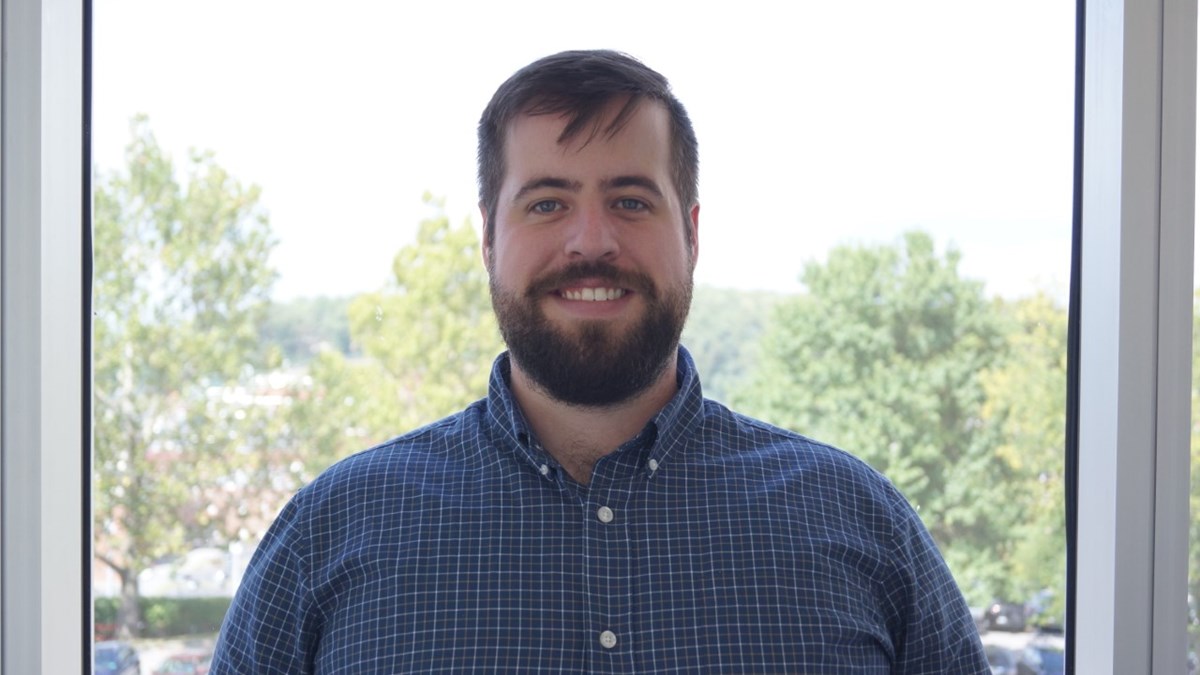Kent Marshall

“You only have one body, so being able to help someone through an illness is truly poignant and carries big impact.”
Tell us more about your current academic experience. How does it relate to your graduate studies at WVU? What excites you most about where you are?
I am currently pursuing a dual M.D./Ph.D. (anticipated program entry May 2022), which is a unique program designed to allow the opportunity to approach medicine through both a clinical and research perspective. My drive and curiosity for research grew through my years with exercise physiology at both the undergraduate and graduate level, and I knew I was going to make a pivot. I felt torn about whether I wanted to pursue research or medical practice. Medicine is great because it allows doctors to help people on an individual level to be healthy, but research affords the opportunity for a larger-scale impact on more people.
Once I learned about the unique merging of research and clinical experience in the M.D./Ph.D., I dedicated myself to doing whatever possible to become part of the program, which has been a long journey that has finally paid off. My experiences with exercise physiology were the catalyst to discovering my love for both aspects of medicine and how to successfully combine them.
Why did you choose your major program in Exercise Physiology?
I will never forget when both my father and grandfather suffered from heart attacks. The care that the surgeons showed me and my family during their recovery demonstrated to me the awesome impact that healthcare providers can have. It was then I knew that I wanted to someday provide that same experience to families in need. You only have one body, so being able to help someone through an illness is truly poignant and carries a big impact.
What are some of the most rewarding aspects of your academic experience? What skillsets are you utilizing from what you learned?
While in the master’s program, I was a clinical intern in the Human Performance Lab. The HPL is the heart and soul of the Exercise Physiology program. I was able to interact with patients from cardiac rehab in state-of-the-art facilities and learn so many valuable skillsets from ultrasound techniques, to measuring small changes in pulse and blood pressure. This experience was key in developing the kind of all-encompassing skillsets in being fully responsible for an individual’s care. I worked with patients with lung problems, neurological disorders, and different types of cancer. When people hear about my major, they initially think of exercise as purely physical fitness, but it is so much more than that. It is the collective patient and research experience in healthcare.
What would you tell prospective students interested in pursuing a Master’s in Exercise Physiology about your experience at WVU and the School of Medicine?
Very few master’s programs provide you with such extensive experience in both clinical and research education. The marriage of these areas sets you up for the best possible success in professional programs later on. The master’s in exercise physiology helped me to understand just how pivotal research is to the practice of many different fields in medicine. Exercise physiology gives you exposure to physiology like no other degree. It was just concentrated and distilled enough to put me at an advantage in my future medical career. I owe an immense gratitude to all that I learned during my eight years with the department.
Have you worked with any faculty or staff members who have an impact on you while at WVU?
One of the most rewarding aspects of the master’s program is the faculty. This highly skilled team works so cohesively and creates such a strong and comprehensive knowledge set. It creates this experience of collaboration and teamwork that is like no other. The clinical faculty, Professors Danny Bonner, Dave Donley and Diana Gilleland bring a wealth of knowledge and empathy to both their patients and the students that they are educating. The breadth of research in the program is also astounding. I was able to work with several faculty across research topics, from Dr. Chantler’s cardiovascular research to publishing with Dr. Olfert’s on the effects of e-cigarette use.
Is there anything else that you would like to share with prospective students?
The training and opportunities I received with the WVU School of Medicine had real-world impacts. I rented an ultrasound machine to study for an exam, and after examining his neighbor’s injured knee, I noticed that there was clearly something wrong. Though I was still a student in training, I was able to provide him with solid advice to seek medical care. He later discovered that his diagnosis was correct and the medical treatment potentially saved his neighbor’s life. You can read more in a news article about the incident here.
Additional facts about Kent:
- He's the M.D. class president and co-chair for the student independent analysis committee for the pending Liaison Committee on Medical Education site visit.
- Kent was on the football team and served as the backup Mountaineer.
- He's also married.